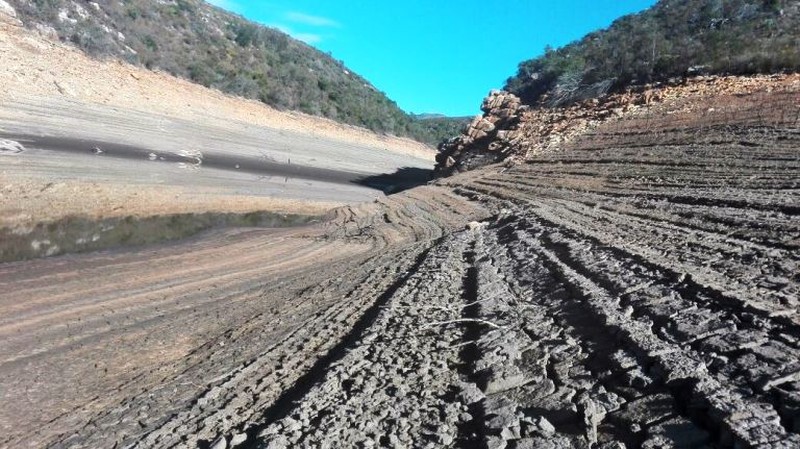Cape Town may be recovering from the drought that plagued it for all of 2017, but other areas across South Africa haven’t been so lucky. Namely, the Nelson Mandela Bay Municipality (NMB).
The area that encompasses Port Elizabeth has been among the worst affected. Its five largest dams currently hold just 17.9% of their total storage.
No ad to show here.
“November 2015 was the last time our dams were filled to 100% capacity,” the municipality explains on its dam resource page.
While the likes of the Loerie Dam is currently at 86% full, it makes a small dent on the overall landscape. The NMB’s largest dam, the Impofu, holds just 27.5% of its 106 885 megalitre capacity.
The Impofu Dam, Nelson Mandela Bay’s largest dam, is just 27.5% full
Granted, the Eastern Cape’s largest metropolitan area uses a lot less water than Cape Town. According to NMB, the city uses just over 260-million litres per day. Cape Town uses around double that daily.
Still, it’s clear that Nelson Mandela Bay’s water storage system is severely stressed.
There is good news though.
Over the weekend, much of the Eastern Cape received notable rainfall amounts.
According to Africa Weather, catchment areas like Patensie and Joubertina received in excess of 30mm. Uitenhage, south of the Groendal Dam, received 37mm. Port Elizabeth itself received 41mm.
RAINFALL OBSERVATIONS IN THE 24 HRS TO 8AM
Patensie 42mm
PE 41mm
Uitenhage 37mm
Addo 36mm
Joubertina 32mm
Porterville 20mm
Grahamstown 17mm
Robertson 12mm
Ladismith 12mm
Cape Town 10mm@ReenvalSA @landbou pic.twitter.com/KHdGU7U3vV — AfricaWeather (@AfricaWeather_) September 3, 2018
Is this enough? Not likely. But more rainfall is set to impact the Western Cape throughout the week, and hopefully the Eastern Cape too.
Feature image: Churchill Dam, Nelson Mandela Bay Municipality
